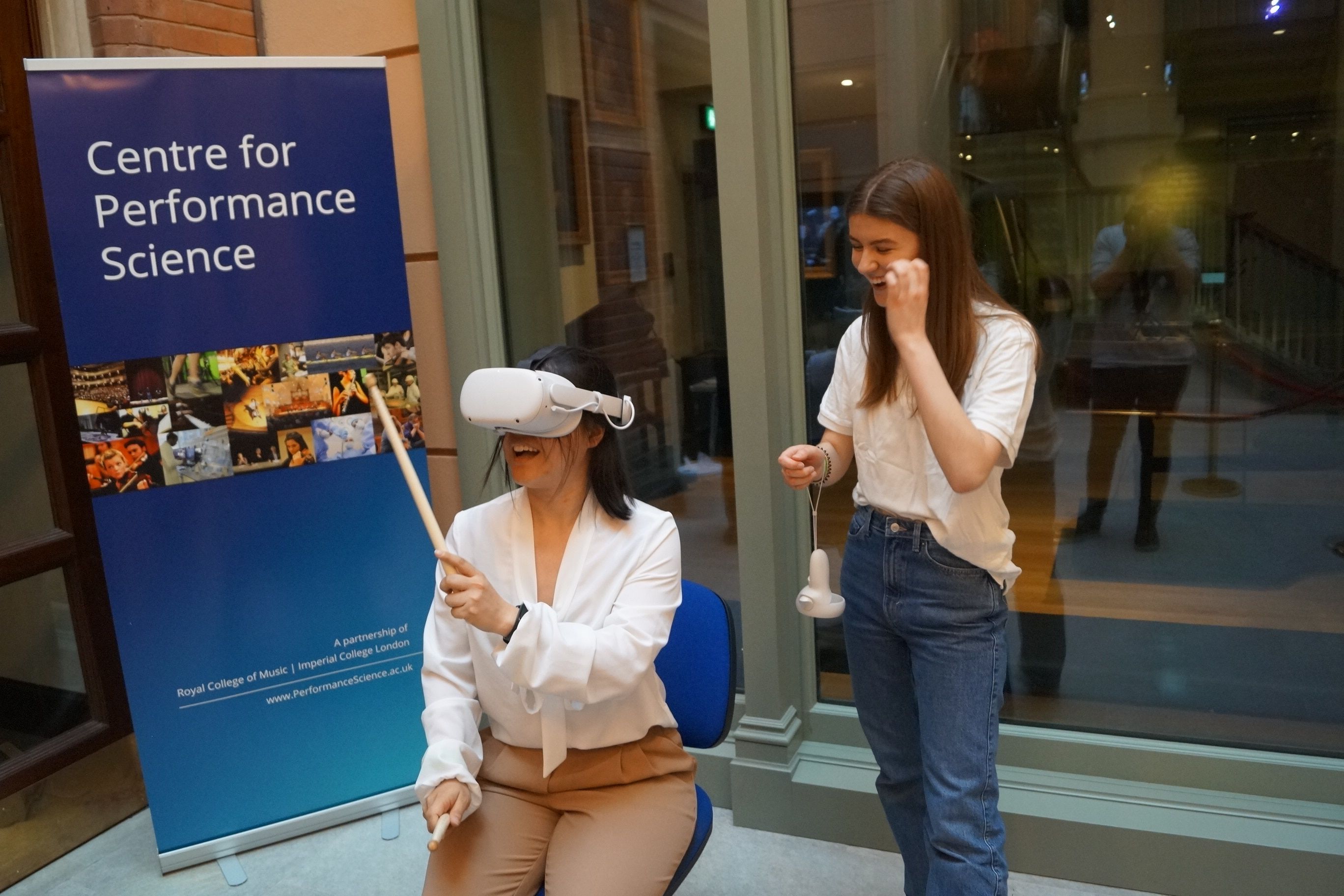
The HEartS Professional project in action: exploring the role of VR in performing arts

- Written byAnnika Loebig
- Published date 20 May 2022

In 2020, at the height of the Covid-19 pandemic, UAL’s Creative Computing Institute (CCI), Royal College of Music (RCM) and Imperial College London came together to merge disciplines for HEartS Professional, a collaborative research project funded by AHRC looking at how the pandemic affected the practice and the wellbeing of performers and artists of all disciplines.
Their research recognised the immense impact the various lockdowns had on the performing arts industry and their social and professional communities. Despite the fact that more people relied on the creative arts to stay connected and entertained while being at home, Covid-19 hit the creative industries particularly hard, with more than 10 million creative jobs and around £13.9m lost during the pandemic.
The 3 partners first worked together during the VR Rehearse and Perform project, funded by Innovate UK and led by Dr Vali Lalioti, Programme Director at CCI and founder of The Innovation Consultancy. Additional partners on the project included CCI’s Post-Doctoral research fellows Sophia Ppali and Yun Jung Jang. Dr Lorenzo Picinali also joined them from Imperial College London, who’s currently a Reader in Audio Experience Design, and Research Fellow in Performance Science Dr Terry Clark joined the project representing RCM.
Bridging the gap between performance science and creative computing, the project explored the potential use of VR technologies to help musicians stay connected to their craft even when they’re unable to step on real stages or access concert halls.
“This was a project to recreate our main concert hall in a virtual space. In this collaboration, we saw so much potential for using this technology to create new experiences for musicians and audiences,” Dr George Waddell, Lecturer in Performance Science at RCM, explains. “When we were putting together the HEartS Professional project, we were very keen to continue that partnership.
Testing VR technology at RCM's Festival of Percussion
“Being part of this project is super exciting, because one of the things I love about working at CCI is that you're involved in cutting edge technology but being driven by creativity,” Dr Bea Wohl, Research Assistant at CCI, tells us. “A lot of computer science spaces let the technology drive the project forward, and we kind of flip that around. We work from a creative point of view, looking at how the technology can support creative practice, but with a deep knowledge of computer science.”
RCM’s annual Festival of Percussion proved to be a perfect opportunity to test the technology developed at their Centre for Performance Science in collaboration with UAL’s Creative Computing Institute. The demonstrations were set up in two spaces.
The first space recreated a live environment where performers and visitors were able to sit down at a drum kit and play in front of a virtual audience of 10,000 people, which was projected right in front of them.
Sasha Kaye, a doctoral student at RCM, who was supporting the event and helped visitors use the virtual performance space, tells us: “The utility and potential for virtual reality and other simulation technologies is huge in performance. It can recreate, to some extent, what a performance might look like and help musicians learn how to actually practice performing, which is something they might not be able to do as effectively in a standard practice room.”
In the other space, visitors were asked to put on a headset to land into a virtual reality world, where they got to be a part of a five-person drumline performing with others as if they were in the room with them.

Thinking about next steps, the team involved in the HEartS Professional project are also interested in looking at the impact musical spaces have on non-performers, particularly as the Covid-19 pandemic deprived many people of opportunities to connect with the music scene.
“There are implications for changes in social connectedness to wellbeing. I don't think anyone would really be that surprised if I were to say that wellbeing took a bit of a hit during the pandemic. But something that did help in that time was technology - it was a way for people to connect, to some extent anyway, and bridge the physical and social distance when they couldn't gather physically,” Sascha explains.
“We want technology to be something that brings people together, not divides us apart,” George tells us. “We hope that music and the performing arts are going to be the way that we can do that, and that we make sure technology is a connecting force in our communities.”
“I am very proud of the work and the CCI team that developed this, Sophia Ppali and Yuni Jang. It is heartening to see the work I started in the middle of the pandemic with Innovate UK funding, inspiring young talent at the RCM percussion festival,” Dr Vali Lalioti tells us.
Moving forward, the collaboration aspires to be an ongoing enquiry into what immersive tech experiences can offer the performing arts industry. Dr Lalioti is currently on a visiting professorship in Japan, developing the next generation of creative robotics and XR technologies to help make performances like opera and classical training more inclusive and connected to diverse communities.
The ultimate goal is to incorporate mixed reality technologies, also known as augmented reality, to create a virtual overlap on top of the real world, which further enhances the experience for musicians and audiences.
Find out more about HEartS Professional and VR Rehearse and Perform
Explore other Knowledge Exchange initiatives happening at UAL
If you'd like to collaborate with UAL, get in touch! Email us on business@arts.ac.uk